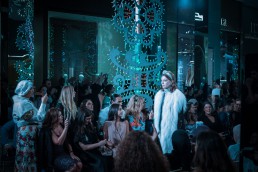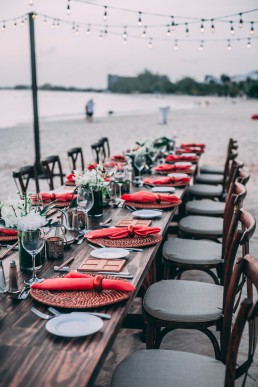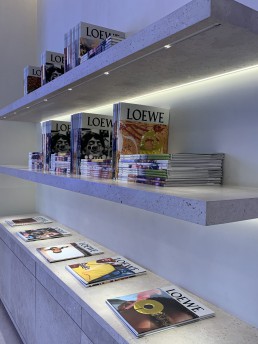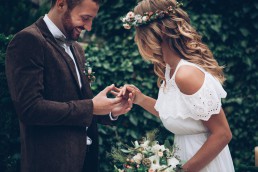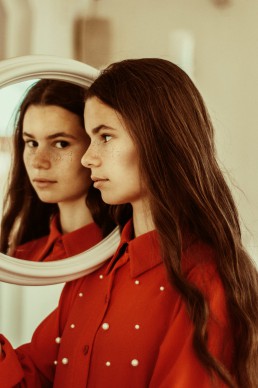Where Do You See Yourself in the Future?
Achieve your desired career objectives by picking the right education for you! Here is a list of the different jobs you can apply for after you have completed your favorite course.
Marketing and Communications for Fashion and Luxury Brands
- Marketing Director
- Public Relations
- Content Writer
- Online Communications
- Head of Communications and Showroom
- Account Manager
- Head of Advertisement and Media
- Corporate Image Manager
International Retail Management
- Store Manager
- Supervisor or Head of Store
- Store General Manager
- Retail Buyer
- Analyst
- Sales and Marketing Manager
- Head of eCommerce Management
Image Consultant and Personal Shopper
- Image Consultant and Personal Shopper Agency Owner
- In-House Image Consultant at Department Stores
- Shopping Tour Guide
- Luxury Firm Sales
- Entrepreneur
- Business Development
- Branding Consultant
- Event Producer
- Production Manager
- Project Coordinator
- Freelance Presentation and Event Designer
- Event Planning Agency Owner
- Event Planner
- Freelance Wedding Planner
- Wedding Designer
- Event Planner
Did you envision yourself in one of these careers? What are you waiting for? All of our courses begin on June 29th, enroll now!
How Can You Contribute to Sustainability in the Fashion Industry?
Yesterday, June 8th, World Oceans Day, we organized a live roundtable with experts to speak about the evolution of the industry thanks to sustainability. During “The Future of Sustainability in the Fashion Industry” panelists tackled a range of topics including how the UN is actively working with brands to achieve sustainability goals, how the current COVID-19 pandemic is driving innovation within the industry, and finally how everyone can contribute with their actions towards achieving sustainability, in addition to answering the questions of the attendees.
The panel, moderated by Francisco J. López Navarrete, Director of ELLE Education and CEO at Mindway, was composed of CEOs of sustainable fashion brands, as well as a representative from the UN. It is worth noting that each CEO had built a different business model that contributes to sustainability.
The panelists present were:
Lucie Brigham, Chief of Office at the United Nations Office for Partnerships which serves as a global gateway for catalysing and building partnership initiatives between public and private sector stakeholders in furtherance of the Sustainable Development Goals
Javier Goyeneche, President and Founder of Ecoalf, a fashion company with the aim to reduce waste in the oceans from industrialized countries.
Tricia Carey, Director of Global Business Development Apparel at Lenzing Fibers, a well-known advocate for innovation and sustainability in the textile and apparel industry, also involved in the development of the marketing plan for the TENCEL fiber.
Jess Fleischer, CEO and Founder of Son of a Tailor, a clothing-tech company that focuses on eliminating waste in clothing production by using a custom made algorithm to create custom fitted fit garments.
All of their perspectives showed different sides of how sustainability can be pushed by brands but also by the consumer. In particular Brigham finalized the roundtable by encouraging all viewers to use the Sustainable Development Goals as a framework for their day-to-day.
Watch this live roundtable here!
What is the Ideal ELLE Education Certificate Student?
ELLE Education Certificates are designed to provide the aspiring professionals all the knowledge they need to become a leader within their desired sector; all in flexible manner that allows students to select the three courses of their interest, and join the editions that are convenient to their schedule (within two years).
There are three ELLE Education Certificates: Certificate in Event Direction, Certificate in Product Launching and finally, Certificate in Editorial Processes.
Completing a certificate means becoming an expert that has knowledge of several roles in one profession. An Event Direction Certificate student will walk out with the knowledge to direct several types of events and how to lead their own business. A Product Launching Certificate student will know all of the steps in product launching, from the design of the product to how to advertise it. Finally, an Editorial Processes Certificate Student will also have a 360 degree view of their role and will understand not only about fashion production but also how fashion events are launched and models prepared.
The ideal ELLE Education Certificate student is hungry for knowledge, wants to lead and finds joy in it, is highly ambitious and motivated to attain their goals, and will stop at nothing to become a key industry leader.
Does this sound like you? Find out more about our certificates and embark the journey to accomplish your dreams.
The Pre-Production Phase of an Event
The pre-production is the most extensive phase of the event production processes, and is essential in order to ensure the function is a success.
The fundamental aspects of the affair such as its type and everything related to it will be determined during this phase.
The first thing you will receive as an Event Producer is a briefing that contains the preferences of the clients and what they want, as well at the goal of the event.
Once the entire team is familiar with this briefing, you will start your “first draft” of the celebration or ceremony, some of the first steps are:
-Brainstorming
-Contacting providers
-Finding venue options
-Recruiting Personnel
-Determining the first draft of the budget
-Making drafts of the event’s program, to make an estimate of the timing, get familiar with the use of spaces, etc. all according to the nature of the event, of course.
Should it be a programmed event, there are many factors that should be taken into account during this phase such as the philosophy of the event, the host and their role, and the protocol to be followed.
Learn in detail about this phase, and the other phases of Event Production by enrolling to our short course!
How to Deal with Clients as an Event Designer
Customer satisfaction is the first priority for the Event Designer, word of mouth and reviews are very important for clients when it comes to hiring this particular professional.
The first step is to understand that the role of the Event Designer is to translate the client’s idea into a physical reality and design. So whilst you can unleash your creativity through designing events, the focus should always be to transform the vision of your client into something tangible.
For this reason, it’s important to be clear with certain aspects from the get-go, this would include:
-Your Competencies
The clients needs to have very clear what you are capable of, this will control expectations and ensure there are no disappointments or misunderstandings down the line.
-The Contract
You must have a contract that leaves your services well-defined under the client’s budget.
-Flexibility and Assertiveness
Events always suffer last minute changes, they are expected, and design is also no different, it is a lot of feedback back and forth. For this reason you must be flexible, but at the same time this doesn’t mean following blindly the wants of the client, at the end of the day you are the expert professional so you must present your proposals with the confidence and assertiveness of such.
-Setting Up a Calendar
This gives a clear timeline which reduces uncertainty between you and the client.
In summary, it is all about managing expectations and keeping an honest and open communication with the client. Want to learn more in detail and from real-life anecdotes? Check out our Event Designer short course!
Metrics to Measure the Success of a Marketing Campaign
Metrics are essential in order be able to evaluate the success of your campaign and how it can improve. There are a lot of ways in which you can measure success, below you can see a list of only some metrics. Before anything else however, make sure you set up a goal you can compare your results to (a SMART goal).
1- Organic Search Traffic
A large organic search will indicate that your brand is visible and known.
2-Referral Traffic
This is the amount of people who reach your website from other websites, blogs, social media accounts, it can show you the interest people have in your content.
3-Session Duration
This can allow you to check if the content is appealing to the leads you are attracting to your website. If the session duration is low it can mean your leads are not in tune with your content and you may want to change your target.
4-Number of Followers
This is clear in social media, if your number of followers increases it means you are reaching interested people!
5-User Engagement
Shares, likes, comments, tags to other friends, are all measurements of campaign success!
6-Completing Actions
Actions are usually related to spending on your product. Conversion from campaign to action are the biggest measurement of success.
These are only very basic metrics and their meaning, if you would like to find out more enroll in our Marketing and Communications for Fashion and Luxury Brands Diploma Course.
Key Providers for a Wedding Planner
A Wedding Planner is in charge of all the organization aspects of the wedding day. For this reason a good professional works with a series of providers that can give the best service possible under the budget assigned to the wedding. Although time-consuming, finding the providers and making a thorough evaluation is essential for the success of the event. The Wedding Planner must have a variety of options he or she can pick from depending on the needs of their clients. Below you can find a list of the main providers you must take into account when organizing a wedding.
-Catering
-Photography
-Filmography
-Hairdressing Salon
-Make up artists
-Dress designers
-Suit designers/ suit rental business
-Transportation
-Stationary
-Furniture rental
-Music bands and DJs
-Programmers for web design
-Flower shops and florists
-Venue providers
-Jewelry
As a tip, the Wedding Planner must absolutely make sure to be familiar with the work of each of its providers and their strengths and weaknesses! A good service depends on the knowledge of these aspects to provide the client with what they need, and to ensure the success of the event.
Want to find out more? Become an expert Wedding Planner, join our short course!
Hints to Creating the Perfect Wardrobe
One of the tasks of a Personal Shopper can be setting up a wardrobe for a client, this means selecting different outfits for a range of different occasions! It involves taking a look at the wardrobe of the client and then deciding what to keep, what not to keep, and what needs to be bought new. Here are some hints for setting up the perfect wardrobe!
First, the basics, you need undergarments! If you are a woman the job is finding the right size of brassiere, underwear in the right fabric (usually cotton), and stockings for different occasions.
Second you need to determine which activities you engage in most (working, going out to dinner, working out, etc.), these are the main occasions you need an outfit for. Additionally if you live in a country with seasons you will need basics for such occasions for the different weather during the year.
Generally you will need:
-A classic suit for all seasons
-A little black dress
-Jeans
-High quality and comfortable shoes (at least one pair of low heels, a pair of high heels, one pair of flats, and a pair of sneakers)
-A winter jacket (with the cut according to your body shape)
-Complements (a handbag, scarves, etc,)
In general what changes according to the season are the complements, as well the fabrics of your clothing that adapt to hot or cold weather.
Finally a really important part of the perfect wardrobe is order! Make sure you buy boxes and hangers to store all your clothes!
Want to know the details? Sign up to our Image Consultant and Personal Shopper short course, and learn all of the secrets from experts and practicing professionals.
Innovation Trends in Fashion Retail
Innovation in fashion retail is mostly centered around two concepts, enhancing customer experience, and making processes more efficient. As technology keeps advancing at an exponential rate, and becomes less costly to implement in day-to-day activities, we are looking at an uncharted area that opens the floor for creativity in how to use this technology in a unique way that will engage the consumer.
The line is becoming more and more blurred between the digital and the real world, so we are looking at brands creating digital clothing for avatars, and clothing not available in real life; live commerce (a new version of TV buy-now channels), underlining that offering quality content matters; self-service, yesterday we talked about a very specific example with Zara and their new pick up service for online buyers on our Instagram that renders talking to the staff obsolete! The use of biometrics (a great example is the beauty industry with services that allow you to see what a color would look like on your skin before buying) and Augmented Reality (AR) (an example worth noting are furniture stores that allow you to see how furniture would look in your house before purchase!) to personalize the shopping experience; and finally same-day deliveries.
That is not to say that analogic experiences and values do not matter. We are looking at online-only stores creating physical spaces, whether through pop-ups or actual flagships; brands creating communities and giving visibility to artists, either through actual displays in their stores or in their online channels; and finally the move to more ethical and eco-friendly practices!
If you are considering a career path in retail, you must gain the mindset and skills to adapt to the new changes and understand how it will evolve next! Check out our International Retail Management Diploma Course!
References:
Baron, Katie. “Retail Futures: 9 Trends, Strategies And Innovation Opportunities To Set 2020 Alight.” Forbes, Forbes Magazine, 6 Jan. 2020, www.forbes.com/sites/katiebaron/2020/01/06/retail-futures-9-trends-strategies--innovation-opportunities-to-set-2020-alight/#7cf302b12844.
Johnson, Tara. “15 Innovative Retail Trends to Watch in 2020.” Tinuiti, 3 Mar.
2020, tinuiti.com/blog/ecommerce/retail-trends/.




